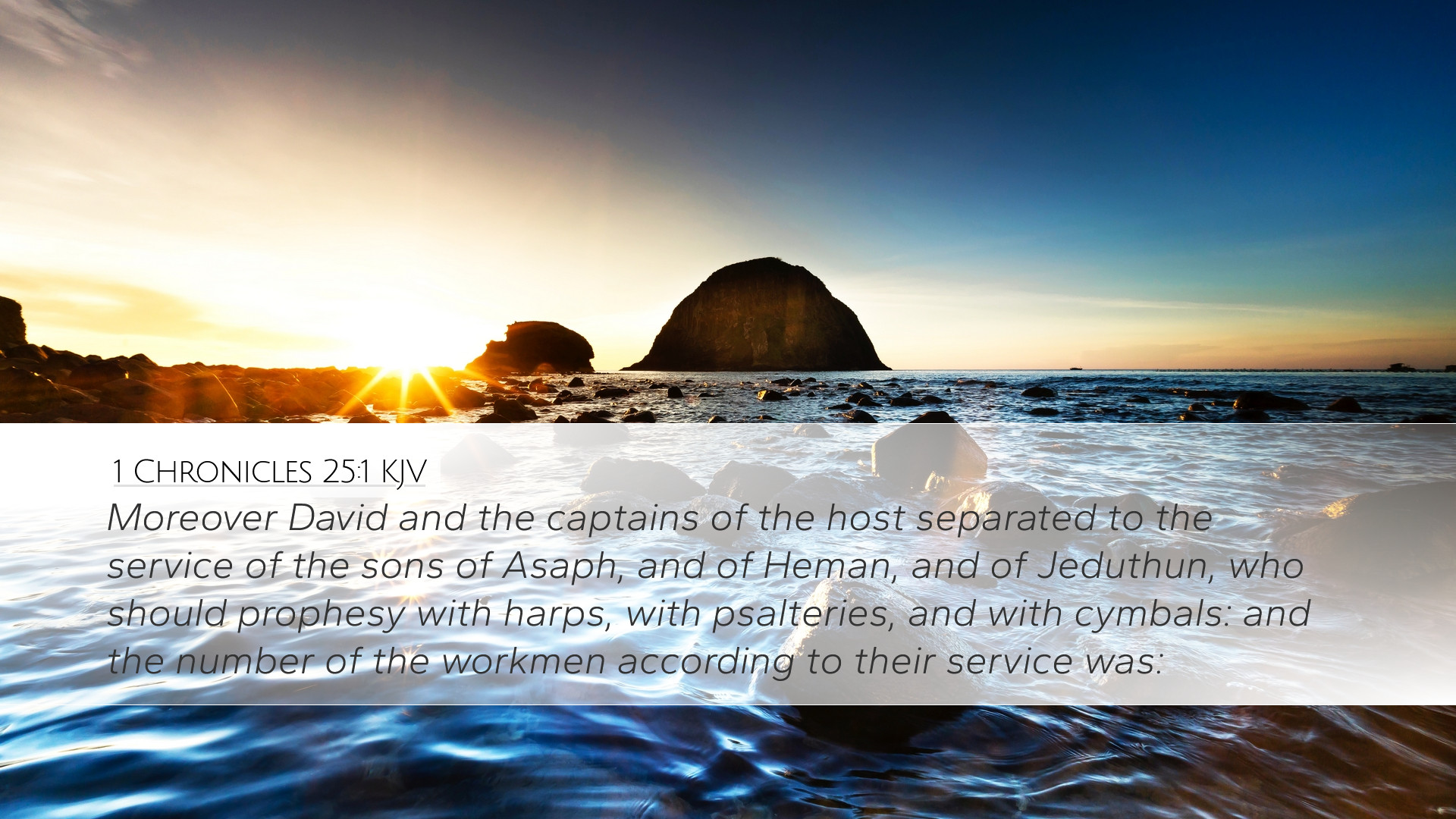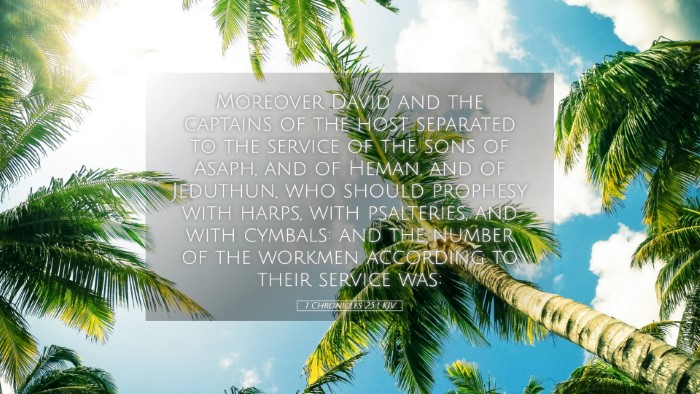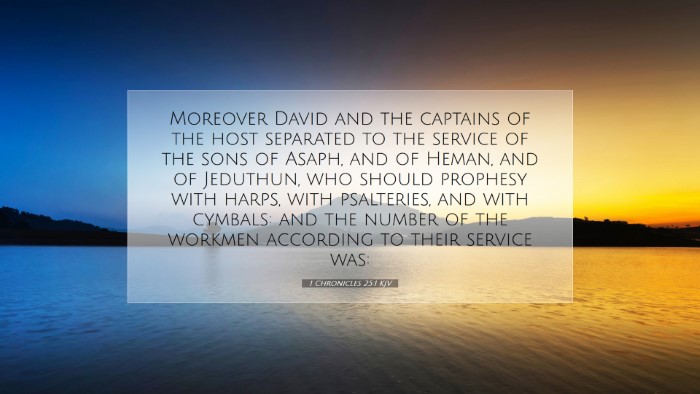Commentary on 1 Chronicles 25:1
Introduction
1 Chronicles 25:1 is a significant verse that delves into the organization of the worshipers in the Temple under King David's direction. This pivotal instruction highlights the importance of music and the role of musicians in the worship process, providing valuable insights for leaders, theologians, and scholars alike.
Verse Text
"Moreover, David and the captains of the host separated to the service of the sons of Asaph, and of Heman, and of Jeduthun, who should prophesy with harps, with psalteries, and with cymbals: and the number of the workmen according to their service was..."
The Context of 1 Chronicles
The book of 1 Chronicles focuses on the reign of King David and his preparations for the construction of the Temple, which would be realized under his son Solomon. In this context, music becomes a critical aspect of worship, reflecting the broader themes of skilled service and communal worship within Israel.
Musical Worship in Israel
Music was integral to the worship of Yahweh, acting as a conduit for expressing devotion, joy, and reverence. The separation of the sons of Asaph, Heman, and Jeduthun for musical service indicates that music was not merely an adjunct to worship but central to the experience of encountering God.
Insights from Public Domain Commentaries
Matthew Henry's Commentary
Matthew Henry emphasizes the importance of music in worship, viewing it as a powerful form of "prophesying." In his analysis, he highlights that the role of musicians was to lead the congregation in heartfelt praise and prophetic utterances through their instruments. Henry notes:
"It is a sacred service, and should be executed with skill and fervor... The musicians were not performers merely, but ministers of God."
This view elevates the role of musicians from mere entertainers to spiritual leaders, crucial in shaping the worship atmosphere. Henry stimulates reflection on the spiritual responsibilities tied to the art of music within the church, noting that:
"Those who lead in worship must be spiritually attuned to lead others into God’s presence."
Albert Barnes' Notes on the Bible
Barnes brings attention to the organizational aspect of the worship ministry. He acknowledges David's strategic efforts to enlist and appoint musicians, indicating forethought in divine service organization. He states that:
"David separated these men to secure the service of music, to give due honor to God."
The systematic approach of David serves as a model for worship leadership today, suggesting that orderly worship encourages participation and reverence among congregants. Furthermore, Barnes underscores the diversity of instruments used, which enriches the worship experience:
"The variety of instruments signifies the fullness of joy that accompanies true worship."
Adam Clarke's Commentary
Adam Clarke offers insights into the individual musicians and their lineage. He points out the hereditary nature of the musical roles, where the sons of the prominent figures Asaph, Heman, and Jeduthun were entrusted with leading worship. Clarke points out:
"These families were of special honor, as their roles were divinely ordained."
He highlights the spiritual legacy that musicians carried, reminding contemporary worship leaders to consider the depth of their calling and the lineage they represent in Christ. Clarke encourages:
"Just as these men were set apart for divine service, so also must today’s worship leaders be called and appointed for this high privilege."
Theological Implications
The separation of musicians in 1 Chronicles 25:1 signifies a profound theological understanding of worship as a communal, corporate act of glorifying God. It challenges the contemporary church to reflect on aspects such as:
- The Importance of Preparedness: Are leaders and musicians adequately prepared spiritually and skillfully for ministry?
- The Role of Spiritual Leadership in Worship: Are worship leaders recognized as spiritual guides, as much as musicians?
- Legacy and Calling: Do the musicians understand their calling as descendants of a rich tradition of worship?
Conclusion
In conclusion, 1 Chronicles 25:1 encapsulates essential truths about the nature of worship and the integral role of musicians in leading congregations into the presence of God. Through the insights of respected commentaries like those of Matthew Henry, Albert Barnes, and Adam Clarke, modern pastors, students, and scholars can glean valuable principles for effective worship leadership. The divine orchestration of worship, echoing through the ages, calls for purity of heart, skillful execution, and a commitment to leading God's people into an authentic worship experience.


